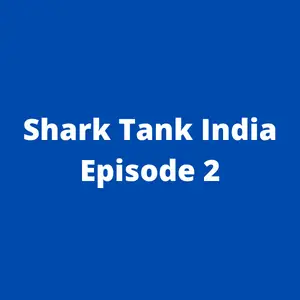For me, Shark Tank India’s Episode 2 was super engaging, given that it featured three distinct types of business pitches. The Episode also served as a revision of two basic business concepts such as gross income and valuation.
In this piece, I will first walk you through each of the three products — Tagz, Head & Heart & Agri Tourism — and then briefly explain the two concepts of gross income and valuation.
Tagz Shark Tank Appearance
Tagz was the first to make an appearance on the second episode of Shark Tank India.
What is Tagz?
Founded by two young founders, Anish and Sagar, Tagz is an urban Gen Z snack brand. So, how is Tagz different from the hundreds of snack brands that already exist in India? Tagz takes a health-conscious snacking approach. It uses a new technology called popping, which helps them make chips with 50% less fat, zero cholesterol, zero trans fat, and no added artificial colors and flavours. The chips come in six different flavours, along with four international dips.
Tagz recognizes that it is difficult to change the eating habits of consumers, so instead, it looks to give an alternative to conscious consumers who want to eat healthier but might not necessarily want to stop eating chips altogether.
Most of the brand’s sales come from their website, but they also sell on 30 more e-platforms like Amazon, Big Basket, and more. Apart from this, Tagz chips are also sold in 2000 retail stores.
Tagz Pitch
Anish and Sagar were seeking 70 lakhs from the Sharks in exchange for 1 percent of Tagz, meaning they valued the company at 70 crores. Sharks liked the product after tasting it, but they were pretty surprised by the lofty valuation.
Anupam was the first shark to reject an opportunity to invest in Tagz and cited the high valuation as the reason. Vineeta didn’t see how this could turn into a 100-crore business, so she bowed out too.
But the Tagz team got two different offers. Aman and Namita teamed up to offer 70 lakhs for a 4% stake. Ashneer countered the offer by offering 70 lakhs for 3.5%.
The founders of Tagz got confused, so both the shark teams explained why their offer was better. Aman and Namita highlighted that they could together help Tagz in brand building. Ashneer tried to discourage the founders of Tagz from accepting the offer.
Tagz founder gave a counter offer of 70 lakhs for 2.5%. In response to this counter offer, Aman and Namita said they could 70 lakhs for 3%. Ashneer responded by going down to 70 lakhs for 2.75%, and Tagz founders agreed to go with him.
Head & Heart Shark Tank Appearance
What is Head & Heart?
Head is Heart is not your usual product business. It is a seemingly magical Japanese technique called Brain Optimization. The technique essentially helps improve the learning and focus capabilities of the brain.
The founders of Head & Heart, Gurunandan Singh & Rajvinder Kaur, a husband % and wife duo, launched the business after Gurunandan was exposed to the technique in his corporate life. Gurunandan had witnessed this technique firsthand in Malaysia and teamed up with his wife, an educationist, to bring this technique to India. The key benefit of this technique is that it improves focus, which is a problem many children deal with.
The Head & Heart team had already trained 5000 participants and tied up with the Himachal education board to include this as an elective subject from grades 9 to 12.
Head & Heart Pitch
Gurunandan & Rajvinder were seeking 50 lakhs in exchange for 5% equity of Head & Heart, meaning they were valuing the business at Rs 10 crore. While the Sharks were amazed during the demonstration of the Brain Optimization technique the founders gave with the help of their daughters, the Sharks were still not clear about the tangible benefits of the business, so all of them refused to invest. Namita suggested the founders focus more on the corporate segment since the time taken to validate the results of the technique over there would be less compared to the kids.
Agri Tourism Shark Tank Appearance
What is Agri Tourism?
Agri Tourism, as is evident from the name, entails tourists coming from cities to experience village life. While this concept is global, Pandurang and Vaishali Taware, the founders of Agri Tourism, are credited for introducing it in India.
Pandurang, a farmer’s son, got the idea of starting this business after he worked in Club and Mahindra for 12 years in the marketing and sales department. Bothered by the fact that fewer and fewer farmer children aspire to become farmers, he decided to turn farming into a more lucrative business through Agri Tourism. Pandurang has received a national award from the Prime minister of India and was also responsible for drafting the Agri Tourism bill in 2002 that was implemented by the government in 2018-2019.
Put simply, Pandurang’s company connects people interested in experiencing village life to farmers who would like to host such people and make some extra bucks. Pandurang’s company also trains farmers to ensure they can host city dwellers in villages in the best possible fashion.
Agri Tourism Shark Tank Pitch
Pandurang and Vaishali were seeking 50 lakhs in exchange for 5% of the company, meaning they were valuing the business at 10 crores. The investment would be used to train more farmers and attract more tourists to experience village life.
Namita was very pleased with the idea and felt it was important to connect young Indians to village life, given that 80% of India lives in villages. Aman suggested that Pandurang join hands with platforms like Make my Trip and others. Vineeta was of the thought that this work was not related to her, so she bowed out. Anupum turned down the offer as well and added that he felt the investment was not needed. Ashneer was of the opinion that the focus should be more on the supply side of things and less on the demand side, so he refused to invest as well.
While none of the Sharks invested in the idea, all of them seemed inspired by the work Pandurang and Vaishali were doing.
Concepts taught in Shark Tank India Episode 2
Gross Margin: Vineeta explained the concept of Gross Margin in the episode, wherein she highlighted that gross margin is the profit you get after deducting the cost price of the product. For example, if you sell a product for Rs 1000 and it costs you Rs 400 to make the product, the gross profit is 60%.
Valuation: Towards the end of the episode, Anupum explained that valuation is basically how much your business is worth, and it can be calculated using the variables of profit margin or sale.


